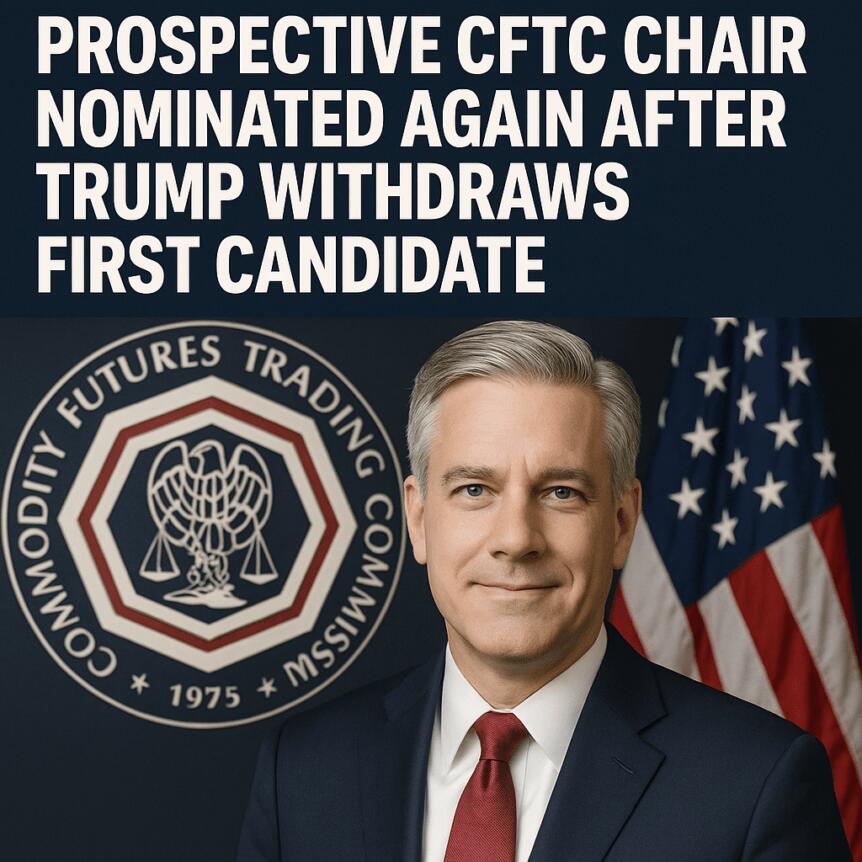US Senate Gears Up for Critical Hearing on Michael Selig’s Nomination to Lead the CFTC
The nomination of Michael Selig, a pro-cryptocurrency attorney serving as chief counsel for the SEC’s crypto task force, is approaching a pivotal Senate hearing that could significantly influence the future regulation of digital assets in the United States. As the crypto industry eagerly watches, discussions surrounding Selig’s potential to lead the Commodity Futures Trading Commission (CFTC) highlight ongoing debates over crypto regulation and the evolving landscape of blockchain oversight.
- Michael Selig’s Senate confirmation hearing scheduled for Nov. 19 amid ongoing crypto regulation deliberations.
- The CFTC faces potential overhaul with the possible appointment of Selig, the administration’s crypto-friendly candidate.
- Acting Chair Caroline Pham’s impending departure could leave the CFTC without a full leadership team.
- The proposed CLARITY Act aims to clarify the regulatory jurisdiction between SEC and CFTC over crypto markets.
- Recent legislative movements reflect heightened focus on structuring digital asset regulation in the U.S.
Michael Selig, currently serving as chief counsel for the SEC’s cryptocurrency task force, is set to undergo questioning from U.S. senators next week as part of his confirmation process to become the next chair of the Commodity Futures Trading Commission (CFTC). The Senate Agriculture Committee announced that its hearing is scheduled for November 19, signaling a critical juncture for crypto regulation and market oversight in the country.
On social media, Selig confirmed his nomination by President Donald Trump to lead the CFTC, following the withdrawal of Brian Quintenz amidst internal disputes and political maneuvering. Quintenz, initially appointed in February, saw his confirmation process stall after reports suggested that the Gemini co-founders, Cameron and Tyler Winklevoss, sought different enforcement assurances from regulators, including private texts later released publicly. This controversy underscored the intense lobbying and political tensions swirling around crypto regulation at the federal level.
Since September, acting Chair Caroline Pham has been the sole member of the five-seat CFTC, raising concerns about regulatory stability. Pham indicated her intention to resign once a full US Senate-approved chair takes office, leaving Selig as a potential sole leader of the agency, which plays a vital role in overseeing derivatives and commodities markets, including digital assets.
US Senate Releases Draft Legislation to Reshape Crypto Market Structure
Regardless of Selig’s confirmation outcome, major policy shifts are imminent. The Senate’s efforts are reflected in the recent release of a draft bill aimed at clarifying regulatory responsibilities for crypto assets. The legislation follows the July passage of the CLARITY Act in the House, intended to assign distinct authority over cryptocurrencies to the SEC and CFTC, reducing jurisdictional overlap and regulatory uncertainty.
The legislation is under review by the Senate Agriculture Committee, which oversees commodities and derivatives, and the Senate Banking Committee, which controls securities regulation. This legislative push underscores Washington’s growing focus on establishing clear, comprehensive frameworks to govern digital assets, NFTs, DeFi, and broader blockchain innovations.
As the regulatory landscape evolves, industry stakeholders anticipate significant changes that could shape the future of crypto markets and compliance standards across the United States, impacting everything from Bitcoin and Ethereum trading to NFT platforms and DeFi protocols.







